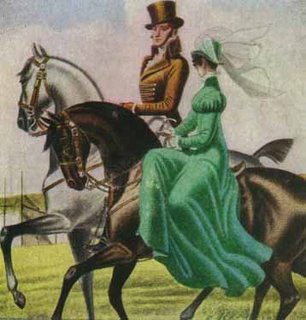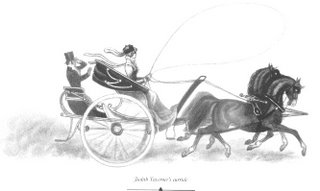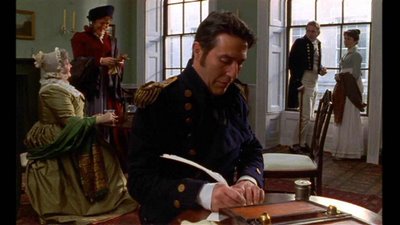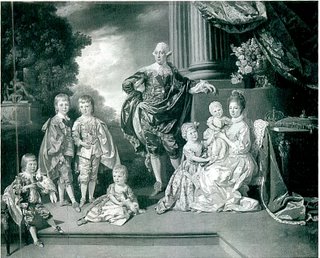
I’ve just returned from a trip to the Midwest–Minnesota, to be exact–and am grumpy, fairly wrinkled, and just a bit stinky. Not to mention weary. To the bone.
In other words, if I were looking for Prince Charming–or in Regency terms, the Duke of Charming–I would probably yell at him because he hadn’t brought me my coffee just the way I like.
Yet so many Regency heroes and heroines take off on a vast journey and manage to fall in love. Without an airplane! Or a Northwest snack box (only $3!). How do they do it? I love road romances, even though I would make an awful heroine in one; in fact, on the plane I was sneaking pages of Georgette Heyer‘s Sylvester, which takes the hero and heroine to France and back again (I’m assuming they come back, I haven’t finished it yet).
Some of my favorite Regencies are, in fact, road romances (click here for the link to AAR’s Special Title Listings of Cabin and Road Romances). Here is a partial listing of some of the ones I’ve loved.
Tallie’s Knight (2001) by Anne Gracie
Sprig Muslin (1956) by Georgette Heyer
Sylvester: or The Wicked Uncle (1957) by Georgette Heyer
Miss Billings Treads the Boards (1993) by Carla Kelly
Miss Chartley’s Guided Tour (1989) by Carla Kelly
Miss Whittier Makes a List (1994) by Carla Kelly
Summer Campaign (1989) by Carla Kelly
The Wedding Journey (2002) by Carla Kelly
With This Ring (1997) by Carla Kelly
Carla Kelly seems to love taking her characters on the road–and really, how better to make two people who in a normal situation would never come in contact with each other fall in love? Throw in an adventure, usually involving a child or a lost or stolen inheritance, and all bets are off. But the romance is on!
 Could you see yourself spending eight hours in a jostling carriage traveling over country roads with your loved one and a precocious child? Or your loved one and an irascible old lady and her pug? How about if you were abducted by said loved one in pursuit of some lost or stolen treasure?
Could you see yourself spending eight hours in a jostling carriage traveling over country roads with your loved one and a precocious child? Or your loved one and an irascible old lady and her pug? How about if you were abducted by said loved one in pursuit of some lost or stolen treasure?
Do you like road romances? Which are your favorites?
Megan
www.meganframpton.com




